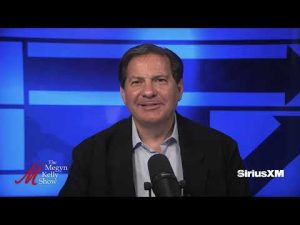In a world where political drama unfolds like reality TV, there’s a new episode captivating the nation’s attention: President Trump’s latest directive for the Justice Department to scrutinize ActBlue, a major Democratic fundraising platform. The president seems to suspect that foreign influence and potentially illegal donations could be subtly woven into ActBlue’s billions in campaign contributions. This initiative has stirred a pot of Democratic outrage, who argue it’s a strategic move to undercut their grassroots momentum.
ActBlue has raised a staggering $16 billion since its inception in 2004. That’s a hefty chunk of change fueling Democratic campaigns. While Republicans have their own version, WinRed, ActBlue’s dominance represents a formidable challenge. However, recent questions have surfaced about antics allegedly involving mysterious and prolific donors. Strange patterns have emerged, such as deceased individuals or folks on modest incomes apparently giving thousands of times over. This has raised eyebrows and prompted Republicans – who’ve been investigating these concerning trends for years – to push for a formal probe.
Democrats, predictably, are crying foul. They call the investigation a dangerous flex of presidential power designed to stifle opposition. It seems like anything former President Trump touches turns politically radioactive, as the mere mention of his interest in an issue can provoke an intense response. ActBlue, never missing a beat, is already leveraging the controversy to fuel their political machine, fully turning this drama into a fundraising opportunity.
Meanwhile, insiders share that such suspicious donation patterns can open the door for unscrupulous foreign entities to meddle with U.S. elections. Integrity in elections should be a bipartisan concern. Yet, as predictably as a sunrise, Democrats accuse Trump of silencing opponents while Republicans nod knowingly, insisting such an investigation is overdue. After all, if there’s nothing to hide, then what’s the harm? They argue that sniffing out irregularities ensures the democratic process isn’t undermined, foreign puppet-style.
Beyond the immediate controversy, this situation also highlights deeper Democratic tensions. Younger firebrands within the party, such as David Hogg, are challenging the status quo from within, stirring a sort of political civil war. As seasoned members like Dick Durbin begin to step down, there’s a palpable shift. One wonders if the Democratic apparatus can remain coherent when its various factions pull in different directions. Watching this internal struggle unfold, some question whether the leadership can maintain unity or if the party will split into more progressive versus centrist camps. It perhaps also suggests a party scrambling to find its footing, to project and define its future amidst its own generational storms.







